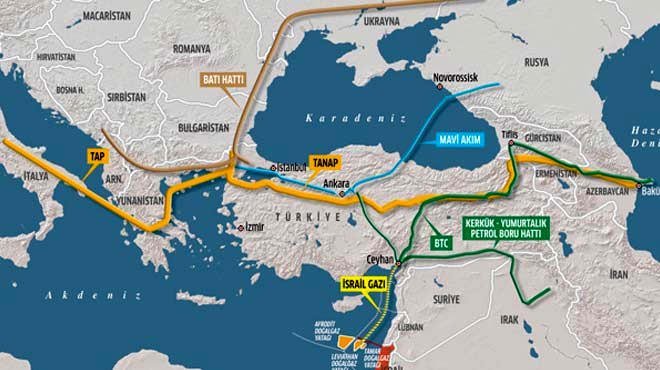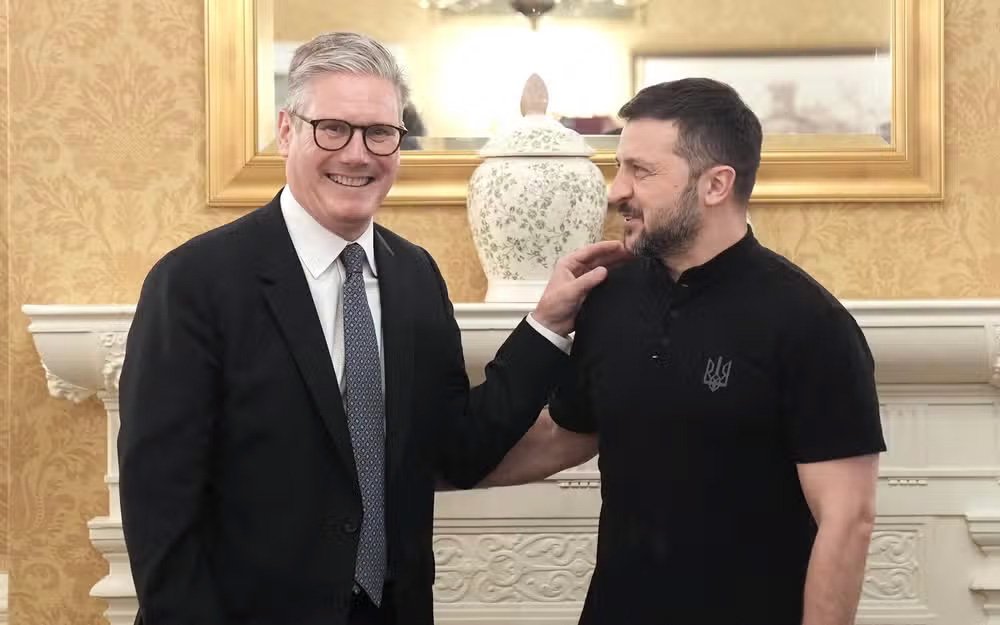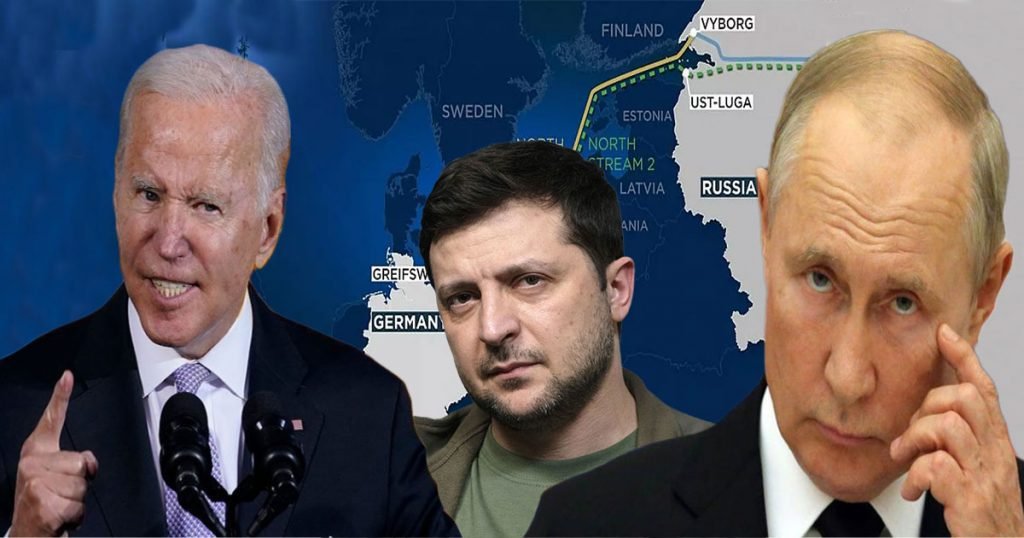The False Choice: Both Candidates Offer More War
How America’s Election Could Reshape Global Conflicts…
Have you ever noticed how, despite all the heated rhetoric about “choice” in democratic elections, when it comes to matters of war and peace, voters are increasingly offered what amounts to no choice at all?
As Britain watches the American electoral drama unfold – with implications both foreign and domestic that will inevitably wash up on our shores – we’re witnessing a disturbing pattern that should give pause to anyone concerned with democratic accountability in foreign policy. The current presidential race presents a masterclass in the illusion of choice, a devil’s bargain for those concerned with peace and international stability.
In Gaza, where over 43,000 Palestinians have died and millions face displacement, both candidates offer variations on the same theme – unwavering support for Israel, differing only in rhetoric and tone. Harris speaks of humanitarian concerns while continuing to supply weapons; Trump promises Netanyahu free rein while coyly suggesting he alone can broker peace.
The Ukraine question is equally troubling. Harris, the continuity candidate, pledges ongoing support for Kyiv, but her vision offers little more than an open-ended commitment to a conflict that has already cost thousands of lives and billions in expenditure. This is not a strategy, but a forlorn hope of Russian attrition – The prospect of a “forever war” in Ukraine, without a clear pathway to lasting peace, represents a dangerous liability for British interests.
And while Trump boasts about ending the conflict through personal diplomacy with Putin that too raises alarming questions. What concessions might a desperate Ukraine be forced to make to secure an American-brokered settlement? The redrawing of Europe’s security architecture to accommodate Russian demands could have profound implications for Britain. Our commitment to NATO and the post-war order in Europe would be sorely tested, while the US would be exacerbating already strained relations with the EU.
Harris’s approach may provide a semblance of continuity, but it papers over the fundamental flaws in the West’s Ukraine policy. As the war drags on, the human toll mounts and the risk of escalation grows. Britain cannot simply defer to Washington’s lead, whether it’s Harris’s open-ended support or Trump’s unpredictable horse-trading.
The stark reality facing Britain is this: our so-called “special relationship” with America may soon be tested in ways we haven’t seen since Suez. Consider how quickly our strategic position could shift. Under Harris, we’d likely maintain our current course – supporting Ukraine, backing Israel in the genocide in Gaza, and generally following Washington’s lead. But what happens if Trump, true to his “America First” doctrine, suddenly cuts a deal with Putin that leaves both Ukraine and NATO’s eastern flank and Britain’s alliance with Ukraine exposed?
More concerning still is the Middle East powder keg. Britain, as a permanent UN Security Council member and significant diplomatic player in the region, cannot simply wash its hands of the expanding conflict. Yet neither candidate offers a coherent strategy for containing it. Harris’s careful statements about Palestinian suffering, while continuing to approve funds and arms sales to Israel, suggest a continuation of the morally ambiguous status quo allowing for escalation. Trump’s embrace of Netanyahu’s maximalist position, combined with his mercurial approach to Arab states, could also accelerate the region’s descent into wider conflict.
The financial subtext cannot be ignored either…
While Israel insists this war is about destroying Hamas and the safe return of hostages…The discovery of Gaza’s Marine 1 and 2 gas fields promised economic prosperity. The UN estimates Gaza’s gas could provide over $4 billion in income per annum, a lifeline for Palestinians mired in poverty. Yet Israel keeps these riches out of reach. The Leviathan field is valued at over $524 billion. The discoveries of natural gas in the Levant Basin are in the range of 122 trillion cubic feet while recoverable oil is estimated at 1.7 billion barrels, according to the study, entitled “The Economic Cost of Occupation for the Palestinian People: The Unrealized Oil and Natural Gas Potential.” makes this military action more than viable for Israel along with Britain and the EU potential customers.

And let’s not forget Ukraine’s estimated $26 trillion in mineral resources represents the kind of strategic prize that shapes great power politics. Britain’s post-Brexit economic interests require stable access to these emerging markets. After all while our poor suffer in an energy company-induced cost of living crisis we are pumping billions into the Ukrainian war…we will want to see a return on our investment, and so will the ever-expanding EU. With or without US support.
Let’s be brutally honest: When both candidates support expanding military engagements – whether in Gaza, Ukraine, or beyond – what meaningful choice do peace-minded voters actually have?
This isn’t a uniquely American problem. Here in Britain, we’ve watched Sir Keir Starmer perform similar philosophical gymnastics, promising both robust military support abroad while claiming to represent progressive values at home.
But what’s particularly troubling for British observers is how this election could force a fundamental reassessment of our foreign policy assumptions. Since 1945, we’ve built our strategic thinking on the bedrock of American leadership – yet both candidates seem poised to shake that foundation in different ways.
Consider our position: a mid-sized power with global ambitions, dependent on international trade, and increasingly caught between American unpredictability and European integration. The next US president could force Britain into impossible choices. Support Ukraine against Trump’s wishes? Back Harris’s continuation of unconditional Israeli support? These aren’t merely foreign policy questions – they’re existential challenges to Britain’s place in the world.
The implications for British domestic politics are equally profound. Starmer’s Labour, having embraced a firmly centrist foreign policy, could find itself torn between US demands and domestic pressure. The substantial British Muslim population’s justified anger over Gaza, the growing anti-war movement, and traditional Labour internationalism all pull in different directions from Washington’s stance.
Yet perhaps the most crucial question isn’t being asked: what if neither candidate actually serves British interests? Our diplomatic establishment’s reflexive alignment with Washington increasingly looks like a relic of a dying order. The post-war Pax Americana that underpinned British foreign policy is crumbling, regardless of who wins tomorrow.

The defenders of this system will argue that foreign policy requires “continuity” and “bipartisan consensus.” This is precisely the sort of thinking that has led us into endless cycles of military intervention. When both parties agree on the fundamental premise that military force is the primary tool of foreign policy, they’re really just haggling over the details of implementation.
What’s particularly galling is how this consensus shapes media coverage. Notice how discussions about cutting military budgets are dismissed as “naive,” while proposals to increase military spending are treated as serious and pragmatic? This isn’t accident; it’s architecture.
The Ukraine situation perfectly illustrates this trap. Harris promises more weapons, while Trump promises a “deal” – but neither questions the underlying assumption that America (and by extension, NATO) must be the primary actor in determining Ukraine’s fate. Meanwhile, the military-industrial complex profits either way, whether through direct arms sales or the “reconstruction” that inevitably follows any “peace deal.” They are literally the same companies that destroy and then get the contracts to rebuild…
“When it comes to paying contractors, the sky is the limit; when it comes to financing the basic functions of the state, the coffers are empty.”
― Naomi Klein, The Shock Doctrine: The Rise of Disaster Capitalism
The Gaza crisis further exposes this bankruptcy of choice. Both candidates fundamentally support Israel’s military actions, differing only in their level of public hand-wringing about civilian casualties. Where is the candidate proposing to leverage America’s considerable influence to achieve an actual lasting peace? They don’t exist because the system isn’t designed to produce them.
For British voters watching this unfold, there’s a crucial lesson: When foreign policy consensus becomes too rigid, democracy suffers. We’ve seen this in our own politics, where challenging military interventions often leads to accusations of being “unserious” or “naive.” This narrowing of acceptable debate serves power, not people.
Britain at the Crossroads
The stark reality is that Britain’s traditional diplomatic playbook – crafted in the certainties of the Cold War and refined in the brief unipolar moment of the 1990s – is dangerously outdated. Consider our current predicaments:
When it comes to war, we’ve outsourced our moral and strategic thinking to Washington, leading to policy paralysis. While our streets fill with protesters demanding action to stop the humanitarian catastrophe in Gaza, our government simply echoes whatever line emerges from the White House. This isn’t diplomacy; it’s abdication.
The Ukraine situation is equally telling. Britain’s support for Kyiv could be undermined overnight by a shift in US policy. We’ve failed to build sufficient European consensus to maintain support for Ukraine independent of Washington’s whims. The prospect of Trump cutting a deal with Putin that sacrifices Ukrainian sovereignty terrifies British strategists – yet we have no clear Plan B.
The comfortable illusions of post-war British foreign policy are crumbling before our eyes. For decades, we’ve told ourselves a reassuring story: that our interests and America’s were essentially identical, that our “special relationship” gave us unique influence in Washington, and that American leadership would always provide a reliable framework for British diplomacy. The upcoming US election exposes these assumptions as increasingly dangerous fantasies.
Let’s be blunt – our reliance on China has left us dangerously exposed. The lack of a coherent industrial strategy over the past four decades has ceded control of critical supply chains to Beijing. Chinese factories could bring our economy to its knees merely by halting exports for a few months. This is the uncomfortable truth our political class has been unwilling to confront.
Equally troubling is the way Britain has oscillated between courting Chinese investment and treating Beijing as an adversary. This reactive, ad hoc approach to the world’s rising superpower reveals the poverty of our strategic thinking. Neither Harris nor Trump offers a credible plan to manage this geopolitical challenge. Britain must develop its own China policy, one that protects our interests while maintaining vital economic links.
Rebuilding our diplomatic capacity is the essential first step. The Foreign Office needs a dramatic influx of resources, expertise, and – crucially – the political mandate to chart an independent course. Gone are the days when we could simply follow Washington’s lead, whether on Ukraine, the Middle East, or relations with China.
Our military posture must also be radically reassessed. Being America’s reliable auxiliary may have made sense during the Cold War, but today it constrains our options. Britain needs armed forces configured to defend our actual security requirements, not fighting wars on the other side of the world to support American global hegemony.
This rethinking must extend to our nuclear deterrent. Trident’s dependence on American technology and political support represents a strategic vulnerability in an era of uncertain US leadership. Whether Harris’s multilateralism or Trump’s unilateralism prevails, Britain needs a serious, evidence-based debate about the future of our nuclear strategy.
Economically, we must be willing to leverage our strengths. The City of London’s role as a global financial hub offers far more diplomatic and economic clout than we typically acknowledge. From Russian oligarchs’ money to Gulf sovereign wealth, Britain has economic tools we’ve been reluctant to wield.
Perhaps most crucially, we need a comprehensive industrial strategy to wean ourselves off debilitating dependencies – whether on China for manufacturing or America for our nuclear deterrent. The outsourcing of jobs and communities in pursuit of short-term profits has left us strategically vulnerable. Rebuilding domestic industrial capacity isn’t just an economic imperative; it’s a matter of national security.

The Labour Party’s current position is especially concerning. Starmer’s determination to prove Labour’s pro-American credentials risks trapping Britain in outdated policy frameworks. Yet the left’s traditional internationalism could offer valuable perspectives on building new security architectures, perspectives that are increasingly marginalised.
The fundamental question facing Britain isn’t which American candidate might better serve our interests – it’s whether we’re prepared to think seriously about what those interests actually are. The coming decade will likely see multiple crises that challenge the post-1945 international order. Britain’s response can’t simply be to wait for instructions from Washington.
Consider the domestic implications. Our democracy is increasingly strained by the gap between public opinion and government policy, particularly on international issues. The massive protests over Gaza, the question of support for Ukraine, the growing concern about climate change – these reflect a public more sophisticated in its understanding of global issues than our political class often acknowledges.
The risk isn’t just to our foreign policy but to our democratic legitimacy. When government policy appears dictated by Washington rather than shaped by British interests and values, it feeds a dangerous cynicism about our institutions. This is particularly acute among younger voters, who increasingly question the assumptions that have guided British foreign policy for generations.
The choice facing Britain isn’t between Harris and Trump – it’s between strategic independence and continued subordination to an increasingly unpredictable ally. The coming American election, whether it results in Harris’s cautious continuity or Trump’s disruptive nationalism, offers us an opportunity – perhaps our last – to begin this necessary transformation.
The alternative is continuing strategic drift, with our foreign policy increasingly disconnected from both our interests and our values. The sooner we confront this reality, the better prepared we’ll be for the turbulent decade ahead. Britain’s future place in the world hangs in the balance. It’s time we took responsibility for charting our own course, slipping the lead from being America’s poodle.
Support Independent Journalism Today
Our unwavering dedication is to provide you with unbiased news, diverse perspectives, and insightful opinions. We're on a mission to ensure that those in positions of power are held accountable for their actions, but we can't do it alone. Labour Heartlands is primarily funded by me, Paul Knaggs, and by the generous contributions of readers like you. Your donations keep us going and help us uphold the principles of independent journalism. Join us in our quest for truth, transparency, and accountability – donate today and be a part of our mission!
Like everyone else, we're facing challenges, and we need your help to stay online and continue providing crucial journalism. Every contribution, no matter how small, goes a long way in helping us thrive. By becoming one of our donors, you become a vital part of our mission to uncover the truth and uphold the values of democracy.
While we maintain our independence from political affiliations, we stand united against corruption, injustice, and the erosion of free speech, truth, and democracy. We believe in the power of accurate information in a democracy, and we consider facts non-negotiable.
Your support, no matter the amount, can make a significant impact. Together, we can make a difference and continue our journey toward a more informed and just society.
Thank you for supporting Labour Heartlands









